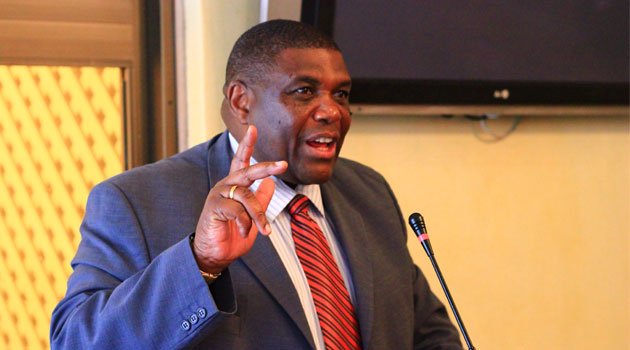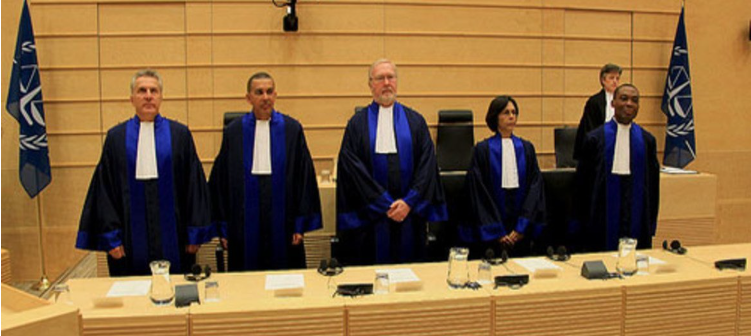Washington D.C – Dr. David Matsanga, a relentless advocate for justice and good governance, stands as one of Africa’s boldest voices against oppression, corruption, and state-sponsored atrocities. A native of Uganda, Matsanga’s activism transcends borders, resonating wherever the cries of the oppressed are heard. Whether it is speaking against systemic corruption in African governments or calling out institutions that fail the people, Matsanga has consistently aligned himself with the marginalized. His latest endeavor is nothing short of monumental: holding Cameroon’s long-serving President Paul Biya accountable for the atrocities committed during the protracted Ambazonia conflict.
Paul Biya’s 42-year tenure as President of Cameroon is marked by an iron-fisted grip on power, systemic corruption, and a blatant disregard for human rights. In the nine years since the Ambazonia crisis escalated into a full-blown conflict, thousands of lives have been lost, villages razed, and countless individuals displaced. The atrocities committed by the Biya regime against Ambazonians—extrajudicial killings, mass torture, and a deliberate targeting of civilian populations—bear the hallmarks of genocide.
Dr. Matsanga has taken an audacious step by filing a lawsuit against Paul Biya at the International Criminal Court (ICC), accusing him of genocidal crimes and crimes against humanity. This act, though daring, raises profound questions: Can the ICC, an institution often criticized for its selective justice, deliver accountability for Paul Biya’s crimes?

The ICC, established to prosecute crimes against humanity, genocide, and war crimes, has often faced accusations of bias. Critics point to the fact that it disproportionately targets leaders from Africa while overlooking atrocities committed by those aligned with Western interests. Paul Biya, who has maintained cozy relations with powerful international allies, appears to fall into the category of untouchables.
A stark contrast can be drawn with the ICC’s recent issuance of an arrest warrant against Israeli Prime Minister Benjamin Netanyahu. This move came in response to Netanyahu’s actions following the October 7, 2023, attacks on Israel. While Israel’s defense measures may have been controversial, Netanyahu acted in the context of safeguarding his nation. Paul Biya, however, has waged a war not against an external threat but against his own citizens, perpetuating cycles of violence and displacement in Ambazonia.
If the ICC seeks to salvage its credibility, it must demonstrate impartiality by holding Paul Biya accountable. Biya’s crimes dwarf those of many leaders who have stood trial at The Hague. For over four decades, he has presided over a regime of impunity, enriching a select elite while millions of Cameroonians languish in poverty. The Southern Cameroons/Ambazonia regions, in particular, have suffered egregious neglect and targeted violence under his administration.
The parallels drawn between Biya and former Liberian President Charles Taylor are compelling. Taylor, once thought untouchable, was eventually brought to justice and sentenced to 50 years in prison for war crimes and crimes against humanity. The precedent exists. The question is whether the ICC has the resolve to extend the same principles of justice to Paul Biya, or if it will once again expose itself as an instrument of selective prosecution.
While Dr. Matsanga’s efforts are commendable, the success of his case hinges on sustained international pressure. Activists, governments, and global institutions must amplify calls for justice in Ambazonia. The evidence is overwhelming, and the world can no longer turn a blind eye to the atrocities committed under Paul Biya’s watch.
Moreover, African nations must take a unified stand against leaders who tarnish the continent’s image with their despotic rule. Allowing leaders like Paul Biya to escape accountability perpetuates the stereotype of Africa as a land of impunity. Matsanga’s fight is not just about Ambazonia; it is a battle for the soul of Africa, for a future where leaders are held to account, and justice is not a privilege but a right.
While skeptics may view the ICC lawsuit as an exercise in futility, it represents a critical step in the struggle for justice. Even if Paul Biya never sets foot in The Hague, the filing of this case sends a powerful message: the crimes committed in Ambazonia will not be forgotten, and those responsible will face judgment in the court of history.
Dr. Matsanga’s actions should inspire all who believe in the principles of justice and Pan-Africanism. The path to accountability may be fraught with obstacles, but it is a necessary journey. If the ICC wishes to be taken seriously as a global arbiter of justice, it must rise above geopolitics and bring Paul Biya to account. For Ambazonians, for Cameroonians, and for Africa as a whole, this is a fight that cannot be abandoned.

